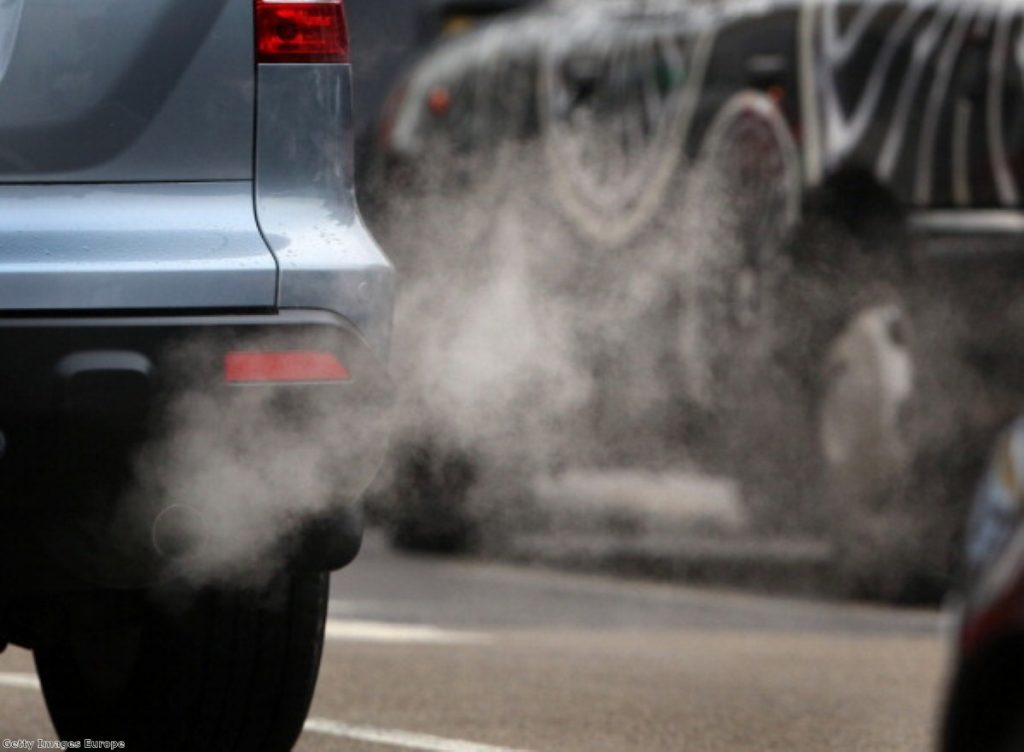The silent killer that politicians still refuse to tackle
If more than 4,000 Londoners died every year as a result of dirty water it would be a national scandal.
If toxic brown liquid poured out of our taps there would be protesters lining the streets and politicians clambering over each other to solve the problem.
But at least then Londoners could opt to pay for bottled water instead. What option do those suffering from our lethal filthy air have?
What option does a child going to school alongside one of London's most polluted roads have when she steps out into the playground? What option does a pensioner suffering from chronic asthma have as diesel fumes blow into her face at the bus stop?


One option might be to elect a politician willing to do something about it. Sadly in London, that is an option we increasingly do not have.
Yesterday the current mayor of London Boris Johnson launched a consultation on proposals that appear to tackle the problem. His plans to implement a new "Ultra Low Emission Zone" seem to ban all but the least polluting vehicles from central London.
In reality it does nothing of the sort. Far from banning the vehicles, Johnson actually wants to allow polluters to buy their way out of the problem. Under Johnson's revised plans, Londoners with the money will be able to pay a fee in order to carry on filling the air with as much pollution as they please. This is a massive retreat from his original policy.
Any cash raised will then land in Transport for London's coffers where it will be spent on – among other things – a huge new road-building programme.
Under Johnson's plans, thousands more polluting vehicles will be encouraged onto the roads, both inside and outside his so-called ultra low-emission zone. And unlike the cars themselves, pollution does not respect emission boundaries. Thousands more cars on the roads will mean thousands more people continuing to die from London's filthy air.
And if all that's not bad enough, Boris admits that his new central London emission zone won't even begin until Autumn 2020. We're all used to politicians putting off problems for their successor to actually deal with but it's quite something else for Boris to put them off until his next successor but one.

Last night the Evening Standard greeted Johnson's plans with typical generosity, as "a step in the right direction."
The truth is that Johnson has not taken a "step in the right direction". In fact he's not even taken a pigeon or a sparrow's step in the right direction. Since he first became mayor, estimates for when London's air would be safe to breathe have been pushed back well beyond 2030, 20 years later than the legal EU requirement.
At best Boris has spent six and a half years standing exactly where he first began. At worst he's taken several giant leaps backwards.
Thankfully Londoners who care about this have some options at the ballot box. Both the Green party and the Liberal Democrats currently back taking real action against pollution in the capital.
Unfortunately only one of the current prospective Labour mayoral candidates – transport commentator Christian Wolmar – appears to have any real plans to clean our air, with most other candidates all endorsing Johnson's wish for more roads to be filled with more cars.
Among those backing the road-building plans is shadow London minister Sadiq Khan, who has also been handed a new role of tackling the growing electoral threat to Labour from the Greens.
Exciting new proposal from @LondonChamber today for a river crossing #East London desperately needs #BridgeEastLondon http://t.co/XsdPnJ68e3
— Sadiq Khan MP (@SadiqKhan) June 30, 2014
One good way to tackle that threat would be for Labour to actually back some green policies, or at the very least not to back plans that will make London's environment far worse.
And if Labour had exerted even half the pressure on this issue as they have on protecting Tube ticket offices and disused police stations, then Johnson would have long ago felt forced to meaningfully deal with the issue.
Because ultimately this is not an environmental problem, it is a problem of political will. And right now that political will is as invisible as the killer pollution that continues to stalk our streets.

